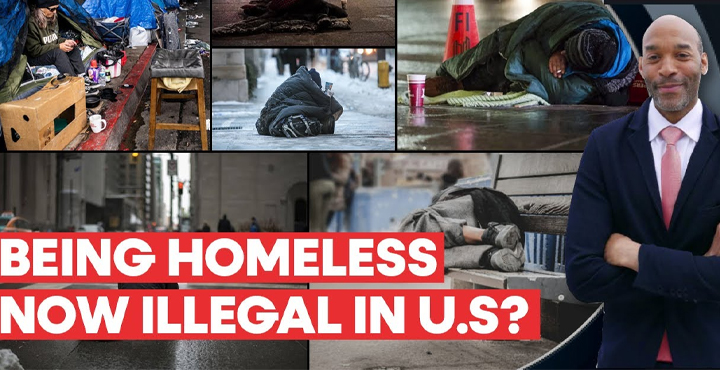
Homelessness is a complex issue that affects many people across the United States. Recently, the Supreme Court delved into a critical question: Is ticketing homeless individuals a form of “cruel and unusual” punishment? This debate, in the case of City of Grants Pass v. Johnson, has sparked intense discussion about the rights of homeless individuals and the responsibilities of cities to address public health and safety concerns.
In Grants Pass, Oregon, like many other cities, ordinances exist that prohibit certain activities in public spaces, including sleeping with bedding. While the city argues that these rules target specific behaviors rather than the status of being homeless, some argue that enforcement unfairly targets those who are unhoused. Police regularly issue tickets to people found sleeping in parks or other public areas, imposing fines that can be burdensome, especially for those already struggling financially.
At the heart of the debate lies the question of whether homelessness itself can be criminalized. Justice Elena Kagan likened sleeping in public to a biological necessity, stating that for homeless individuals, it’s akin to breathing. However, Chief Justice John Roberts raised concerns about where to draw the line between conduct and status. He posed a hypothetical scenario about someone breaking into a store to find food when hungry, questioning whether they could be prosecuted.
The issue is further complicated by a previous Supreme Court decision regarding the criminalization of drug addiction. In that case, the Court ruled that punishing someone for their addiction status was unconstitutional. Similarly, the distinction between conduct and status is crucial in determining whether ticketing homeless individuals violates the Eighth Amendment’s prohibition on “cruel and unusual” punishment.
The case has broader implications beyond Grants Pass, as cities and states across the nation grapple with increasing rates of homelessness. According to the US Department of Housing and Urban Development, over 650,000 people experience homelessness on any given night, with numbers rising steadily. This case serves as a litmus test for how the law balances public safety concerns with the rights and dignity of homeless individuals.
All in all, the Supreme Court’s decision will have significant implications for both homeless individuals and the communities in which they reside. As the justices deliberate, they must consider not only the legality of ticketing homeless people but also the broader societal implications of their ruling. Only time will tell how this pivotal case will shape the future of homelessness policy in the United States.













